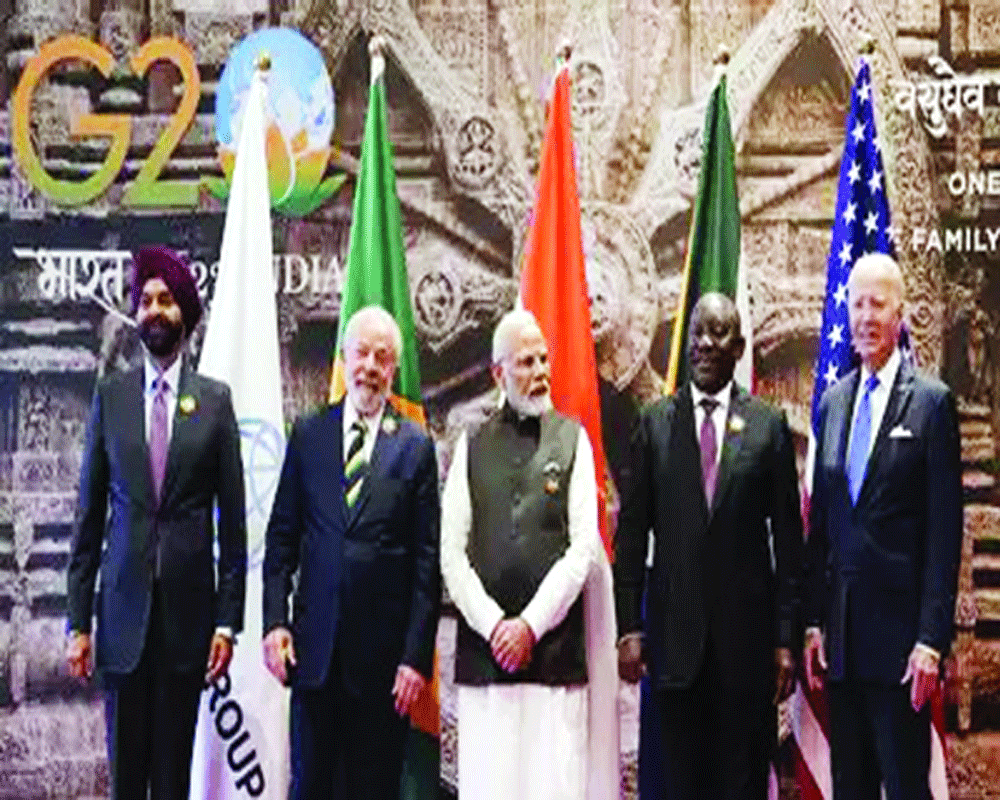Soft power stands as a compelling force, often wielded through economic or cultural influence to shape global perceptions and agendas
Soft power is a persuasive approach to international relations, typically involving the use of economic or cultural influence. India has the potential to create its credibility using this non-tangible power. India is sometimes labelled a “soft power by default” (Wagner, 2010), and is believed to have substantial potential in this field. It was one of the first countries to pursue a soft power strategy, under the leadership of Prime Minister Jawaharlal Nehru, long before the term was coined.
However, after the defeat in the 1962 war with China, India gradually shifted towards a hard power approach, and its foreign policy became more pragmatic and driven by realpolitik.
The Chanakya Niti of non-aggressive settlements; Gandhi’s non-violence movement; the Panchsheel pact of peaceful advancement and a good friendly policy towards its neighbours all exemplify India’s comparative advantage in soft power. The notion of soft power for Indians dates back to the Upanishads with the thought of ‘VasudhaivaKutumbakam’. We can still vouch for our soft power assets in terms of the widespread acceptance of Buddhism; the popularity of yoga and Ayurveda; and belief in ancient universities which draws scholars and learners to India.
To date, our rich, diverse yet united, and vibrant culture, topography, cuisine, architecture and history attract heavy tourism. Not to forget, Indian cinema has helped popularize not just Indian actors but also the vibrant culture and craze for ethnic clothes. Besides, the only common religion of India ‘Cricket’ has empowered the dreams of every youngster in India and has helped create India in the international sports arena.
Our present prime minister Narender Modi has recognised soft power as an asset and has instigated several of these which have helped in the popularization of our nation abroad. The huge success of India’s tenure as G-20 president has been well-acknowledged the world over. Modi’s catchphrases like ‘now is not the time for war’, drew international applause.
Similarly, Atmanirbhar, Make in India and Swachh Bharat have become national slogans and have been able to redefine and give better meaning to the age-old Pleonasm policies, and have also popularized India across the world. Besides he has played a major role in increasing the number of embassies abroad and also reviving ties with regional groups ASEAN, BIMSTEC, and SAARC along with strengthening and intensifying with Eastern and South Asian countries through the East Policy Act, and the Neighborhood First Policy Act. These have helped draw commercial and strategic benefits for India.
Ironically, even after recognizing the huge potential and benefits of soft power, we have several limitations in deriving maximum advantages from it.
There is a lack of formal inclusion of soft power in foreign policy or its nature and scope. It takes a back seat to other important economic and security concerns or the hard power components. Moreover, soft power has only drawn limited attention from scholars and policymakers. Even after a rich and diverse diaspora, culture and media, we have not made noteworthy efforts to formalize any policies in literature.
India being an emerging economy, will take time to stand tall against other developed nations in terms of hard power. But recognizing its strengths in soft power in varied forms, it should work towards further enriching its assets and using it for international trade, thus creating a niche for itself.
(The writer is an Assistant Professor Sri Guru Gobind Singh College of Commerce, University of Delhi; views are personal)


























